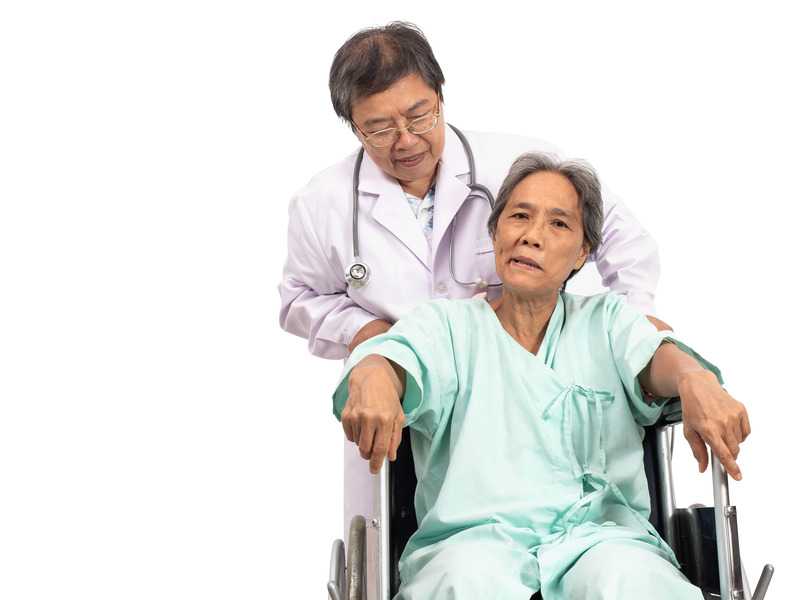
Expert Physiotherapy at Home
Certified physiotherapists visit you at home to provide focused, one-on-one care tailored to your needs. With no travel or waiting rooms, recovery happens in a setting that is comfortable, familiar, and built around your convenience.
Personalised Recovery Programmes
Every treatment plan is designed to suit your condition, goals, and pace. Our physiotherapists follow structured, evolving protocols to ensure consistent progress, with each session aligned to deliver meaningful results.
Trusted Physiotherapists. Real Results.
Our team comprises experienced, background-verified physiotherapists trusted by thousands of families. With a strong focus on safety, reliability, and clinical outcomes, we make recovery at home both effective and reassuring
Patient Testimonials
Portea Physiotherapists for Home Visits
Meet some of our experienced and dedicated healthcare professionals

Dr. Lokesh G
Physiotherapist
Specializations
Experienced in Neurological rehabilitation, Orthopaedic physiotherapy, and Paediatric care
Delivers structured, high-impact treatment plans across neuro, ortho, and paediatrics—ensuring safety, comfort, and measurable recovery at every stage.

Dr. Mohammed Sarwar
Physiotherapist
Specializations
Experienced in Neurological rehabilitation, Adult physiotherapy, and Paediatric care
Combines deep clinical expertise with a compassionate approach, supporting both adults and children through neuro and physical rehabilitation that promotes long-term independence and recovery.

Dr. Nelapati Divya
Physiotherapist
Specializations
Skilled in Orthopaedic rehabilitation, Manual therapy techniques, and Paediatric physiotherapy
Brings a personalised, hands-on approach to healing—combining structural expertise with paediatric sensitivity to restore movement, relieve pain, and improve everyday function.

Dr. Naveen V
Physiotherapist
Specializations
Trained in Pain management, Cardiac and Orthopaedic rehabilitation, Neurological care, and Neural tissue mobilisation
Brings clinical precision and empathy together—designing science-backed recovery protocols for pain relief, nerve mobilisation, and cardio-neuro-ortho rehabilitation across all age groups

Dr. Miloni Savla
Physiotherapist
Specializations
Holds an MPT in Orthopaedics with a focus on Musculoskeletal rehabilitation and strength recovery
Delivers focused, movement-oriented therapy grounded in orthopaedic science—helping patients rebuild strength, restore function, and return to daily life with confidence
Other Cities
Physiotherapy Treatments

introduction: hemiparesis
Hemiparesis is a neurological condition characterized by weakness or partial paralysis on one side of the body. This impairment typically affects the arm, leg, and sometimes the face on the same side, significantly limiting a person’s ability to perform daily activities. Hemiparesis is most commonly associated with strokes but can also result from traumatic brain injuries, tumors, or neurological diseases. The condition varies in severity, ranging from mild weakness to almost complete loss of movement, and it can profoundly impact a person’s quality of life if not managed properly.
signs and symptoms of hemiparesis
The symptoms of hemiparesis vary depending on the underlying cause and the extent of neurological damage. Common signs include reduced strength on one side of the body, difficulty in coordinating movements, and a noticeable change in posture or gait. Individuals may experience stiffness or spasticity, where muscles remain contracted, making movement challenging. Additionally, fine motor skills such as gripping objects, writing, or buttoning clothes are often impaired. In some cases, individuals may also report numbness, tingling, or a burning sensation on the affected side. The severity of these symptoms can fluctuate over time, particularly in cases where treatment and rehabilitation are undertaken.
causes of hemiparesis
Hemiparesis occurs when there is damage to the areas of the brain or spinal cord that control voluntary muscle movement. Strokes are the leading cause, accounting for a significant proportion of cases. During a stroke, blood flow to a part of the brain is disrupted, leading to damage in regions responsible for motor control. Other causes include traumatic brain injuries, brain tumors, multiple sclerosis, and infections like meningitis or encephalitis. In rare cases, congenital conditions such as cerebral palsy may also lead to hemiparesis. Understanding the cause is crucial for determining the appropriate treatment plan and predicting the recovery trajectory.
risks of hemiparesis
Certain factors increase the likelihood of developing hemiparesis. The primary risk factors are those associated with conditions like stroke and brain injury. These include high blood pressure, diabetes, high cholesterol, smoking, and a sedentary lifestyle. Advanced age is another significant risk factor, as the likelihood of strokes and other neurological conditions increases with age. For individuals with a history of head trauma, recurrent injuries can elevate the risk of developing hemiparesis. Recognizing and addressing these risk factors through lifestyle changes and medical interventions can play a critical role in prevention and management.
diagnosis of hemiparesis
Diagnosing hemiparesis involves a thorough clinical evaluation and a detailed medical history. Physicians assess muscle strength, reflexes, and coordination on both sides of the body to determine the extent of weakness. Imaging studies, such as MRI or CT scans, are crucial for identifying the underlying cause, such as a stroke, tumor, or injury. In some cases, additional tests like electromyography (EMG) or nerve conduction studies may be conducted to evaluate the function of the affected muscles and nerves. Early and accurate diagnosis is essential for developing an effective treatment plan and improving outcomes.
treatment methods of hemiparesis
Treatment for hemiparesis focuses on addressing the underlying cause, alleviating symptoms, and restoring as much function as possible. Medical interventions may include medications to manage conditions like high blood pressure or to dissolve blood clots in the case of strokes. Physical therapy is the cornerstone of hemiparesis management, involving exercises designed to strengthen weakened muscles, improve coordination, and enhance mobility. Occupational therapy helps patients relearn daily tasks, while speech therapy may be necessary if facial muscles or speech are affected. In some cases, advanced treatments like Botox injections for spasticity or assistive devices such as braces and canes may be employed to support recovery.
role of physiotherapy in hemiparesis
Physiotherapy plays a vital role in the rehabilitation of individuals with hemiparesis. Early intervention is critical to prevent muscle atrophy, improve flexibility, and reduce the risk of complications such as joint stiffness or pressure sores. Physiotherapists create customized exercise programs that target the specific needs of each patient, gradually increasing the intensity as strength and coordination improve. Techniques such as gait training, balance exercises, and functional electrical stimulation (FES) are often employed to promote recovery. Physiotherapy not only addresses physical impairments but also empowers patients with the confidence and skills needed to regain independence.
coping and support for hemiparesis
Living with hemiparesis can be emotionally and physically challenging. Psychological support, including counseling and support groups, can help individuals cope with the condition and maintain a positive outlook. Family involvement is crucial, as caregivers play a significant role in providing assistance and encouragement during the recovery process. Adaptive devices and home modifications, such as grab bars and widened doorways, can enhance safety and ease of mobility, making daily life more manageable.
how portea helps in hemiparesis
At Portea, we understand the challenges of living with head injuries. Our home-based physiotherapy services are tailored to the specific needs of each individual, providing personalized care to help them regain mobility and independence in a safe and supportive environment.
We also specialize in providing expert physiotherapy services for post-surgical rehab, arthritis, neuro-rehab, sports injury, orthopaedic physiotherapy, physiotherapy for elderly, respiratory disorders, and more—all delivered conveniently at your home. Our dedicated team ensures you receive the personalized care you need for a smooth and successful recovery.
With Portea, you receive expert paralysis physiotherapy treatment at home, delivered by skilled physiotherapists dedicated to your recovery and well-being. Additionally, we offer a wide range of healthcare solutions, including doctor consultations,medical equipment, nursing care, and dedicated trained attendants ensuring personalized and high-quality care tailored to your needs.
portea’s other physiotherapy services based on medical conditions
faq’s
What is hemiparesis?
Hemiparesis is weakness on one side of the body, often caused by brain injury, stroke, or neurological conditions. It affects movement and coordination.
What causes hemiparesis?
Common causes include stroke, brain injury, multiple sclerosis, or cerebral palsy. Damage to one side of the brain typically leads to weakness on the opposite side of the body.
Can hemiparesis be treated?
Treatment may include physical therapy, medication, and assistive devices to improve movement. The severity of recovery depends on the cause and promptness of treatment.
Is hemiparesis permanent?
Hemiparesis can be permanent, but rehabilitation, early intervention, and therapies can help improve function and quality of life for some individuals.
What is the difference between hemiplegia and hemiparesis?
Hemiplegia is complete paralysis on one side of the body, whereas hemiparesis refers to partial weakness. Both are often due to similar neurological conditions.
Doctor Consultation
Nursing
Physiotherapy
Trained Attendant
Elder Care
Mother & Baby Care
Lab Tests
Medical Equipment
Speciality Pharma
Critical Care





